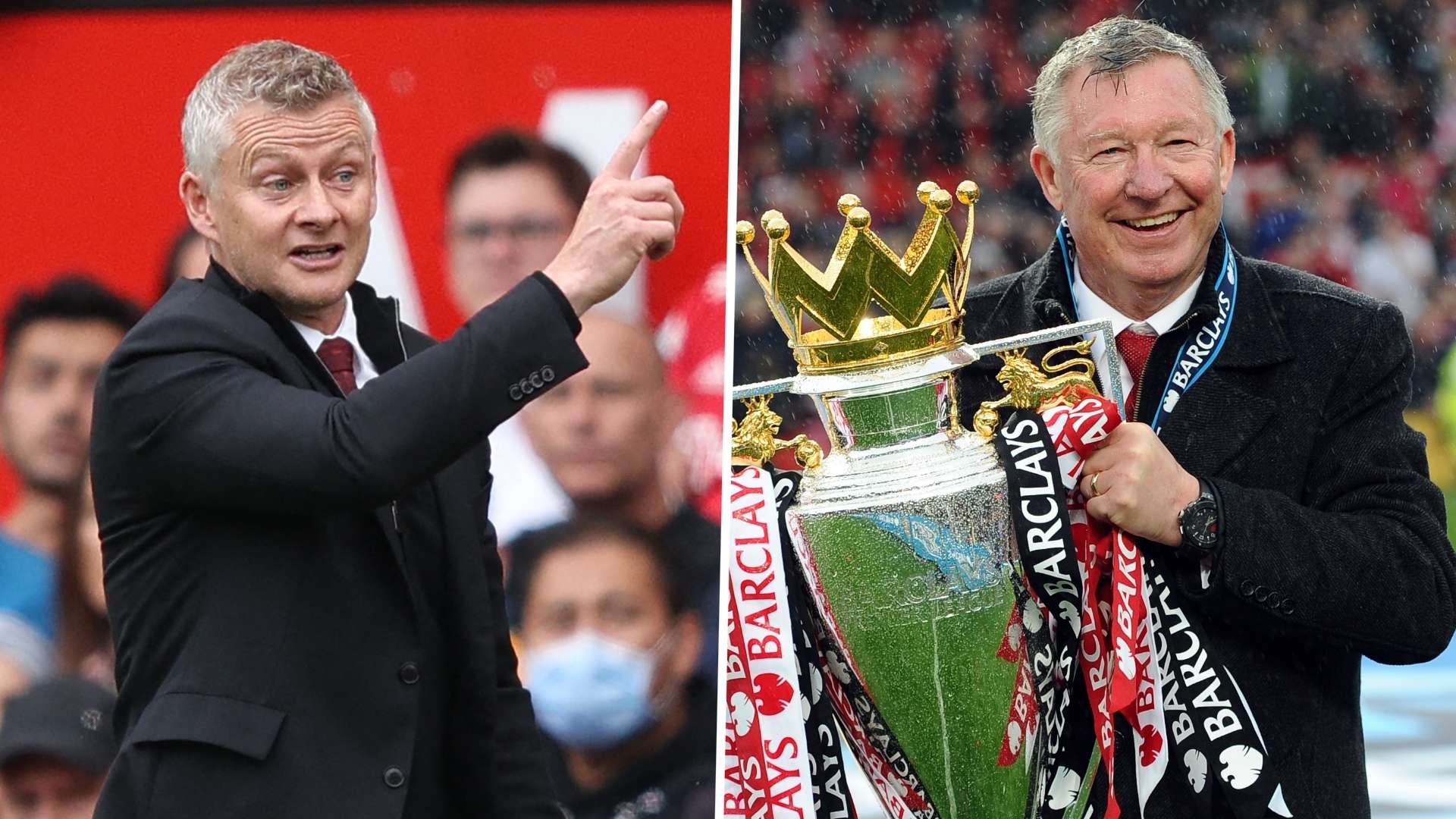In an age of obsession over club ‘DNA’ – a spurious phrase that alludes to some vague idea about how a team ought to play – Manchester United is one of the few teams for which there is a semblance of truth behind the concept.
The 'United way' is, in the broadest possible terms, a commitment to direct attacking football, brute force and surging forward in waves; a philosophy that has far more to do with swagger and machismo than possession or pretty patterns.
It is something Ole Gunnar Solskjaer has alluded to repeatedly throughout his two-and-a-half year tenure at Old Trafford, not only to get supporters onside or give his players a sense of collective – but because he genuinely believes in it.
And while there have been plenty of green shoots to suggest Solskjaer’s team is moving towards this ideal, so far it hasn’t grown into anything substantial.
That’s because there’s a tension between what Solskjaer wants and the tactical landscape of the division he is in.
The Premier League has been dominated in recent years by managers with intricate tactical battle plans, with semi-automated set plays forming the basis of a ruthlessly-choreographed system.
Solskjaer wants individualism and flair, asking his star players to solve their own problems in-game.
It is why Man Utd often looked a little unfocused or blunt when faced with a deep-lying defence, whereas recent title winners like Manchester City or Liverpool will enact pre-set moves to pull the shell apart and create chances.
It is why Fred and Scott McTominay show no sign of improving as a partnership and why United need to sign a progressive, line-breaking box-to-box midfielder to make up for the absence of sophisticated coaching from the dugout.
But it is also why Man Utd are capable of brilliant, beautiful performances like the 5-1 victory over Leeds United on the opening day.
 Getty/Goal
Getty/GoalThere was something about all five goals at Old Trafford that evoked the days of Sir Alex Ferguson: the no-nonsense directness of the through balls, the power in the shots, the oozing confidence of the forwards; you can easily imagine any of those strikes being hit by Wayne Rooney, Robin van Persie, Ruud van Nistlerooy, Andy Cole, or Solskjaer himself.
Leeds, of course, were ideal opponents for this broad-strokes, transition-focused Solskjaer approach.
Marcelo Bielsa’s man-to-man high-pressing and his emptying of central midfield in pursuit of outnumbering the opponent down the flanks creates huge amounts of counterattacking space for teams as talented as Man Utd.
The most important tactical note from the game was Solskjaer’s clever deployment of Paul Pogba, who began on the left but drifted into the No.10 space to join Bruno Fernandes and overwhelm Leeds through the centre.
At times, when Man Utd pinched the ball and launched a quick break in the transition, they had a three on zero in midfield.
Leeds were the perfect team to face, and yet it is still tempting to think of Saturday’s win as a turning point in the Solskjaer project.
His excellent man-management and motivational skills will be important to any title challenge and, therefore, a statement win, in Solskjaer’s preferred style, means more at the start of a new season than an anomalous result somewhere in the middle – like last season’s 6-2 win over Leeds.
Momentum, and a level of cockiness, will be needed for Solskjaer’s plan to work, such is the reliance on individual skill and an unerring faith in the power of relentless attacking football at Old Trafford.
Ferguson teams were about psychological strength, and striking fear into the opponent, as much as they were tactical superiority.
The signing of Jadon Sancho, coupled with Mason Greenwood’s notable improvement, also give Man Utd a more incisive edge in the final third, which could be enough to break through those deeper defences.
 Getty/Goal
Getty/GoalSolskjaer’s time at Old Trafford has always been a bit like that of Zinedine Zidane at Real Madrid, with focus on defensive solidity and personality management, while goals are taken care of by Galactico signings. Sancho fits that description; Greenwood soon will.
But it is too early to get carried away and there remain some notable flaws in the United team that may preclude a title challenge.
Solskjaer badly needs a central midfielder in the mould of Fabinho – someone with the defensive clout to screen but equally adept at pushing the ball back forward – and especially if he is planning, as reported, to play Pogba and Bruno Fernandes together as eights.
Plus there is no getting away from the fact Leeds were incredibly open, inviting another heavy defeat and – quite possibly – setting up a false narrative of Man Utd’s potential to challenge Manchester City, Liverpool, and Chelsea at the top end of the Premier League table.
By the end of September, we will have an answer.
Solskjaer’s side face Southampton, Wolves, Newcastle, and West Ham in their next four league games. It is the kind of run that most title contenders would love, but Man Utd are an unusual team stylistically and do not flourish when forced to hold 70 per cent possession.
If Sancho, Greenwood, Fernandes and Pogba can swagger through those games and help their team-mates avoid another slump into stale passing across midfield, then we can start to get excited.
The 5-1 win against Leeds was a perfect start, but it teaches us little about whether Solskjaer’s attempt to restore the ‘United way’ is suited to the modern game.
